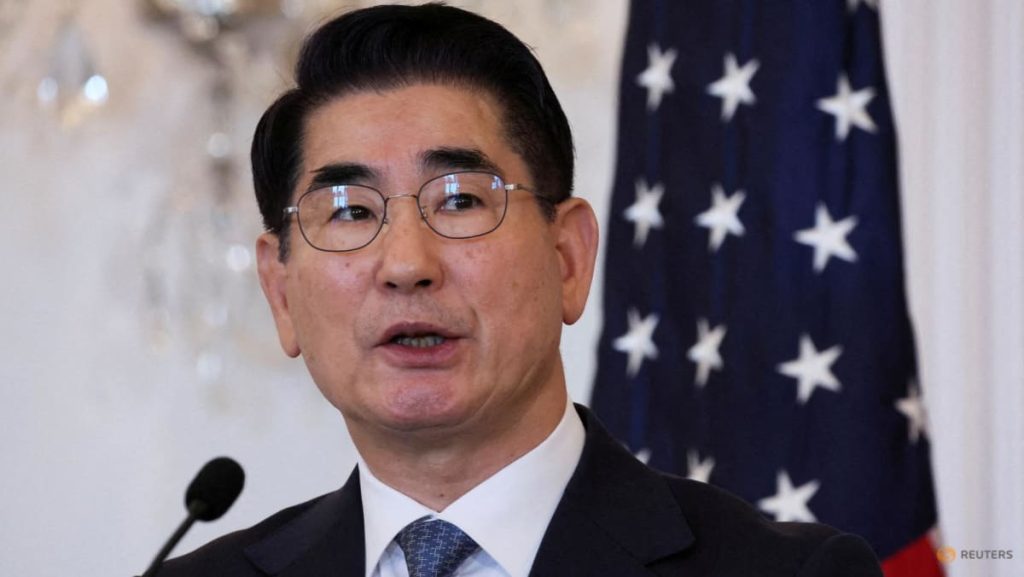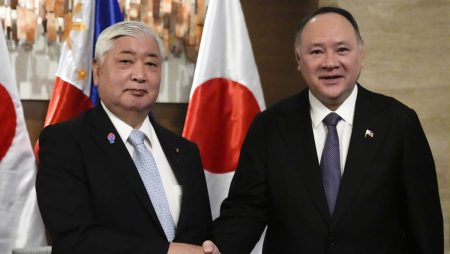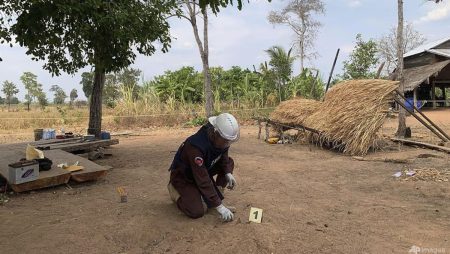The political landscape of South Korea was recently shaken by a dramatic series of events involving former Defence Minister Kim Yong-hyun, culminating in his attempted suicide following his arrest on charges related to the short-lived martial law declaration earlier this month. The incident underscores the deep divisions and high tensions surrounding President Yoon Suk Yeol’s controversial decision to invoke martial law, a move that was swiftly rejected by the National Assembly. Kim’s alleged involvement in the planning and execution of the martial law order placed him at the center of a political firestorm, leading to his resignation and subsequent arrest. His attempted suicide adds another layer of complexity to an already volatile situation, raising questions about the pressures he faced and the potential ramifications for the ongoing investigation.
The sequence of events began on December 3rd when President Yoon declared martial law, deploying military personnel and helicopters to the parliament building. This unprecedented action, ostensibly taken in response to unspecified security concerns, triggered immediate and widespread condemnation from opposition lawmakers and civil society groups. Critics viewed the declaration as an overreach of presidential power and a dangerous precedent that threatened the country’s democratic principles. The National Assembly swiftly responded, voting down the martial law decree just hours after it was announced, forcing President Yoon to rescind the order. This rapid and decisive action by the legislature demonstrated the resilience of South Korea’s democratic institutions and served as a check on executive power.
In the aftermath of the aborted martial law declaration, the focus shifted to accountability and determining the individuals responsible for the controversial decision. Defence Minister Kim Yong-hyun, a key figure in the planning and execution of the martial law order, became a primary target of the investigation. He resigned from his position last Thursday, acknowledging his role in the events, but denying any wrongdoing. However, on Tuesday, December 11th, Kim was formally arrested on a series of charges, including “engaging in critical duties during an insurrection” and “abuse of authority to obstruct the exercise of rights.” These charges indicated the seriousness of the allegations against Kim and suggested that prosecutors believed he had played a significant role in the attempted implementation of martial law.
The dramatic turn of events took an even darker turn just hours before Kim’s arrest was officially announced. According to Shin Yong-hae, the commissioner general of the Korea Correctional Service, Kim attempted suicide at the Seoul Dongbu Detention Center shortly before midnight on Tuesday. Shin revealed during a parliamentary hearing on Wednesday that Kim had attempted to hang himself in the detention center’s toilet using a string from his clothing. A staff member, alerted by the situation, intervened and prevented Kim from completing the act. The timing of the suicide attempt, just prior to the announcement of his arrest, raises questions about the psychological pressure Kim was under and the potential impact of the impending charges on his mental state.
The attempted suicide of the former Defence Minister adds a tragic dimension to the ongoing political controversy surrounding the martial law declaration. It highlights the immense pressure faced by individuals caught in the crosshairs of political investigations and raises concerns about the potential for such incidents to occur in high-stakes situations. The incident also underscores the importance of providing adequate mental health support to individuals in custody, particularly those facing serious charges and potential long-term imprisonment.
The investigation into the events surrounding the martial law declaration is likely to continue, with Kim’s attempted suicide adding another layer of complexity to the proceedings. The focus will likely shift to understanding the motivations behind President Yoon’s decision to declare martial law and the extent to which Kim and other officials were involved in the planning and execution of the order. The incident serves as a stark reminder of the fragility of democratic institutions and the importance of upholding the rule of law, even in times of perceived crisis. The fallout from this incident will undoubtedly have long-lasting implications for South Korean politics and the relationship between the executive and legislative branches of government.










